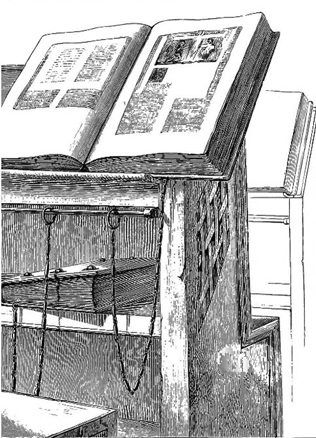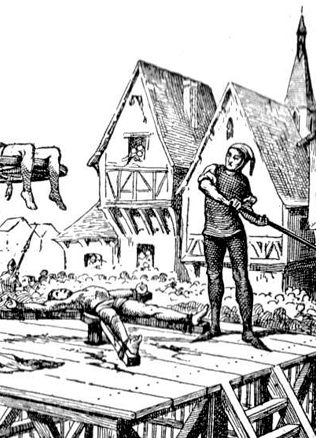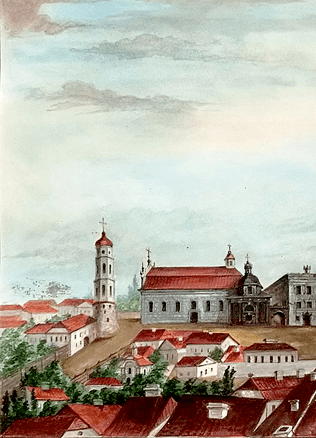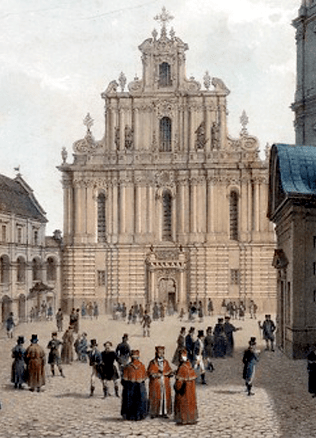Maciej Kazimierz Sarbiewski: poeta laureatus?
After the Jesuits established the Academia Vilnensis, many talented young individuals from Lithuania, Poland and Eastern lands expressed an interest to study here. Among them was Maciej Kazimierz Sarbiewski (1595–1640), Europe’s most prominent Latin poet of the 17th century, a renowned theoretician of poetics, and a poet of Lithuanian Baroque. It has to be noted that he was not born in Lithuania, and was not even of Lithuanian descent. Actually, he was born in the village of Sarbiewo, Masovian Voivodeship, Poland. However, he spent a major part of his life in Lithuania, glorifying its beauty in his poetry. Maciej Kazimierz Sarbiewski’s biography is closely connected with the Kražiai College and in particular with the University of Vilnius. Still alive, Sarbiewski became a classical poet; He became known as Horationis par (Lat. the peer of Horace), the Christian Horace, the Sarmatian Horace, and the last Latin poet (Sarmatian is the poetic name denoting Eastern and Central European lands).
The roads that led to Rome
Maciej Kazimierz Sarbiewski came to Vilnius in 1612 to enter the Jesuit novitiate (where young people, having chosen to pursue a religious path of Jesuit monks, were accepted). The studies in both Jesuit colleges and academies lasted a long time; the students were both studying and teaching in them. After a couple of years, spent in the Jesuit novitiate, Sarbiewski left for Bremen to study philosophy. Later he taught poetics in the Jesuit Colleges of Kražiai and Polotsk (1617–1620). It was in Kražiai that his first poetic pieces of work were created, containing impressive descriptions of the nature in Kražiai environs. The Lithuanian place names and fragments of political life are entwined into the Latin text.
In 1620, Sarbiewski commenced theological studies in Vilnius University. The then rector of the University, a Lithuanian Jesuit Jan Grużewski (around 1578–1646) planned to expand the university and therefore was interested in training new professors. There was a shortage of local professorship, since the majority of them were of foreign descent. The Rector selected suitable candidates to pursue studies in Rome, Maciej Kazimierz Sarbiewski among them.
Sarbiewski embarked on a long trip to Rome in early autumn of 1622. He left Lithuania accompanied by his friends. They travelled via Poland, Germany and the Alps. The long journey was full of dangers and unexpected incidents. In the Bavarian Alps the travellers were attacked by robbers. The adventures experienced during the trip were described by Sarbiewski in his Latin poem A trip to Rome.
The years spent in Rome (1622–1625) were important to Maciej Kazimierz Sarbiewski. While in Rome, he was studying theology, spent a lot of time on researching the past of Rome and collected material on the Roman mythology and archaeology. To enrich his knowledge of ancient literature, Sarbiewski started reading the authors who were not included in the teaching curriculum. In such a way, he gained familiarity with the great ancient poets.
It was in Rome that Sarbiewski’s poetical talent unfolded and flourished. He was publicly reading his poetry and delivering lectures on the theory of poetics.
His European fame came from the first collection of poetry, Lyricorum libri tres (Three Books of Lyrics), published in Köln, Germany, in 1625.
The end of career in its heyday: what really happened in Rome?
The Rome period in Sarbiewski’s life is the period most overgrown with legends.
Clear answers cannot be found to some questions even until now. Was Maciej Kazimierz Sarbiewski crowned with laurels in Rome, or wasn’t he? It is said (and even believed) that during a stay in Rome. Sarbiewski was crowned poeta laureatus (poet laureate) by Pope Urban VIII, as both Dante and Petrarch had been once. The Pope entrusted him with the task of revising the hymns of the breviary. However, this fact is not based on direct historical sources. Yet another “mystery of Rome” is related to Sarbiewskis’s sudden departure from Rome. The reasons, explaining these changes in Sarbiewski’s life, when he was unexpectedly sent back to Vilnius in 1625, are vague. According to one version of the legend, it was in the interests of Pope Urban VIII, who was also a poet and therefore fearing the competition of the young talented Sarmatian poet. Another version says that it could have been an arrangement of the leadership of the Jesuit Order to send Sarbiewski away from Rome. The young Jesuit was allegedly too proud of his achievements, therefore he had to be protected from the temptations of fame and vanity. Prior to leaving Rome, Sarbiewski met with the Pope. Some researchers claim that the Pope granted him a gold ring (or a wreath of laurels?). This is the reason why Maciej Kazimierz Sarbiewski was and is referred to as a poet laureate (poeta laureate) by his contemporaries and subsequent generations).
Having returned from Rome, Sarbiewski taught poetics in Nyasvizh and rhetoric in Polotsk. A further period of his life (from 1627) is related to his activities in Vilnius University. Sarbiewski taught rhetoric, philosophy and theology and was also the Rector’s advisor. He was appointed Dean of Theology and Philosophy Faculties and a preacher of St. John’s church. In 1635, Sarbiewski was appointed confessor and court preacher to Wladyslaw IV Vasa, King of Poland and Lithuania.
During the last years of his life, having become a preacher to the King, Sarbiewski had less time for his creative work. He felt depressed by the court intrigues and his failing health. The letters written by Sarbiewski to his close friend Bishop Stanislaus Lubienski serve as a credible source, providing substantial information about this period. “I am never happier than being alone,” – he writes in the last surviving letter. As a religious he was noted for his love of solitude, turning from the attractions of court life to solitude, prayer and useful study and occupation. However, notwithstanding the hardships encountered during the last years of his life, Sarbiewski never abandoned his creative work. Maciej Kazimierz Sarbiewski died in Warsaw in 1640.
The Sarmatian Horace is no worse than the Roman
Sarbiewski’s poetry can be regarded as an intersection of many ancient and Christian influences, following the Baroque literary fashion, Christian truths are expressed via ancient images. He has left many pieces of artwork dedicated to prominent persons (Pope Urban VIII, the nobility of the Grand Duchy of Lithuania, etc.); in the philosophical poems, the Stoic ideas are reflected and Christianized by the poet. He also cherishes and cultivates the principle of golden mean proposed by Horace, making it a popular remedy to avoid the extremes.
Sarbiewski’s poetical works remained extremely popular in Europe for a long time.
His collection of poems Lyricorum libri tres was revised and supplemented during the poet’s lifetime and released five more times in an expanded and corrected version. Posthumously, until the end of the 18th century, his collections of poems were translated into many European languages and saw about fifty editions altogether. The great Flemish painter Peter Paul Rubens (1577–1640) even designed the title page for the edition of 1632. His fame was wide in the world of letters, with his poetry translated into English, German, French, Italian, Czech, Polish and Lithuanian languages and imitated by a great many poets of the 17th-18th centuries. Sarbiewski’s lyrics was even read and perused in Oxford, as an alternative to Horace’s poems. Furthermore, one of the most beautiful courtyards of Vilnius University is named after him. In it, we can find a memorial plaque to Maciej Kazimierz Sarbiewski and the paintings immortalizing his image. The fame of the great poet is an example of how a legend, which is not backed by historical sources, can become strongly embedded in the historical memory.
Literature: Motiejus Kazimieras Sarbievijus, Lemties žaidimai: poezijos rinktinė, vertė Ona Daukšienė, Rita Katinaitė, Eugenija Ulčinaitė, Vilnius: Baltos lankos, 1995.
Ona Daukšienė



